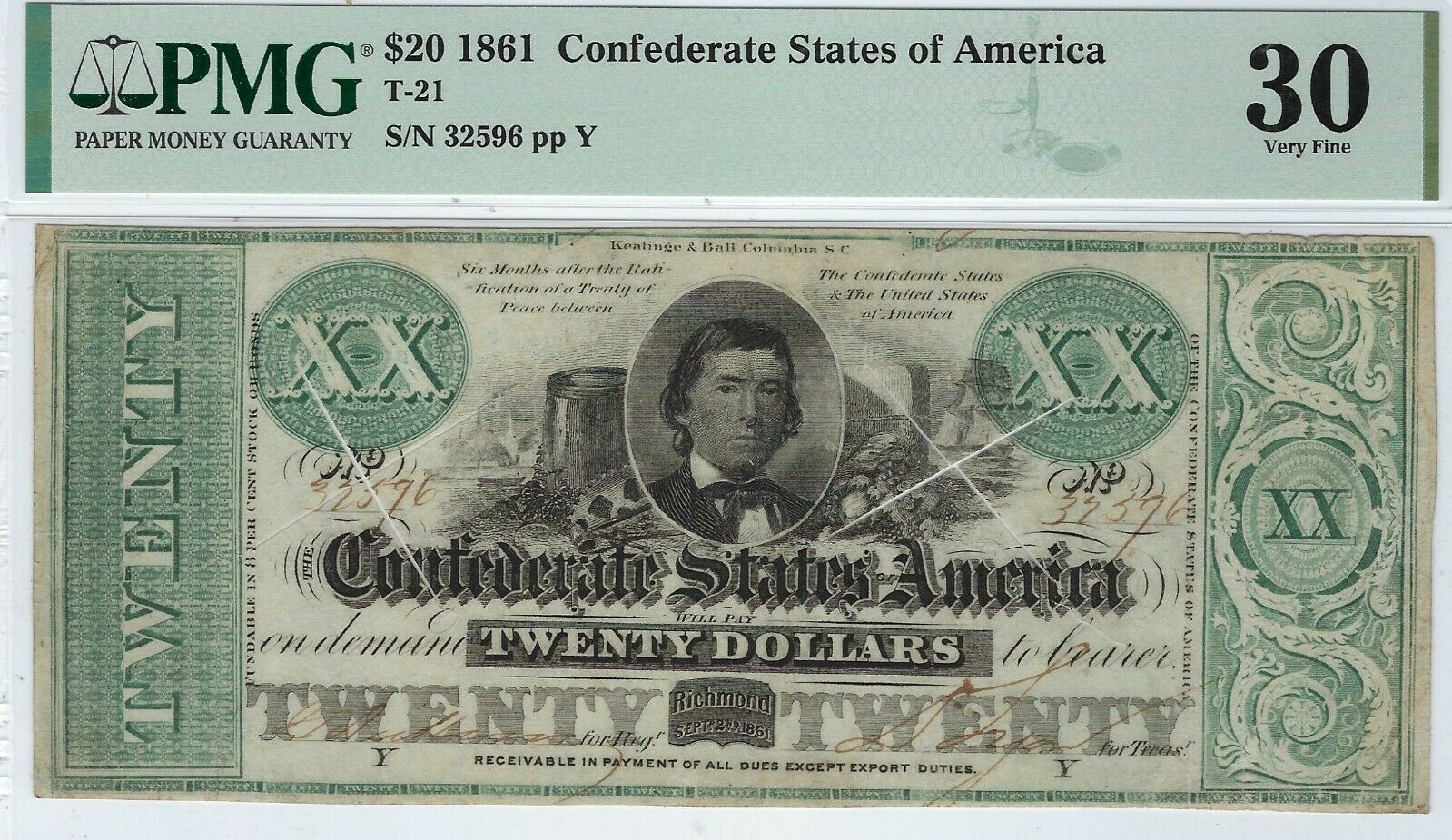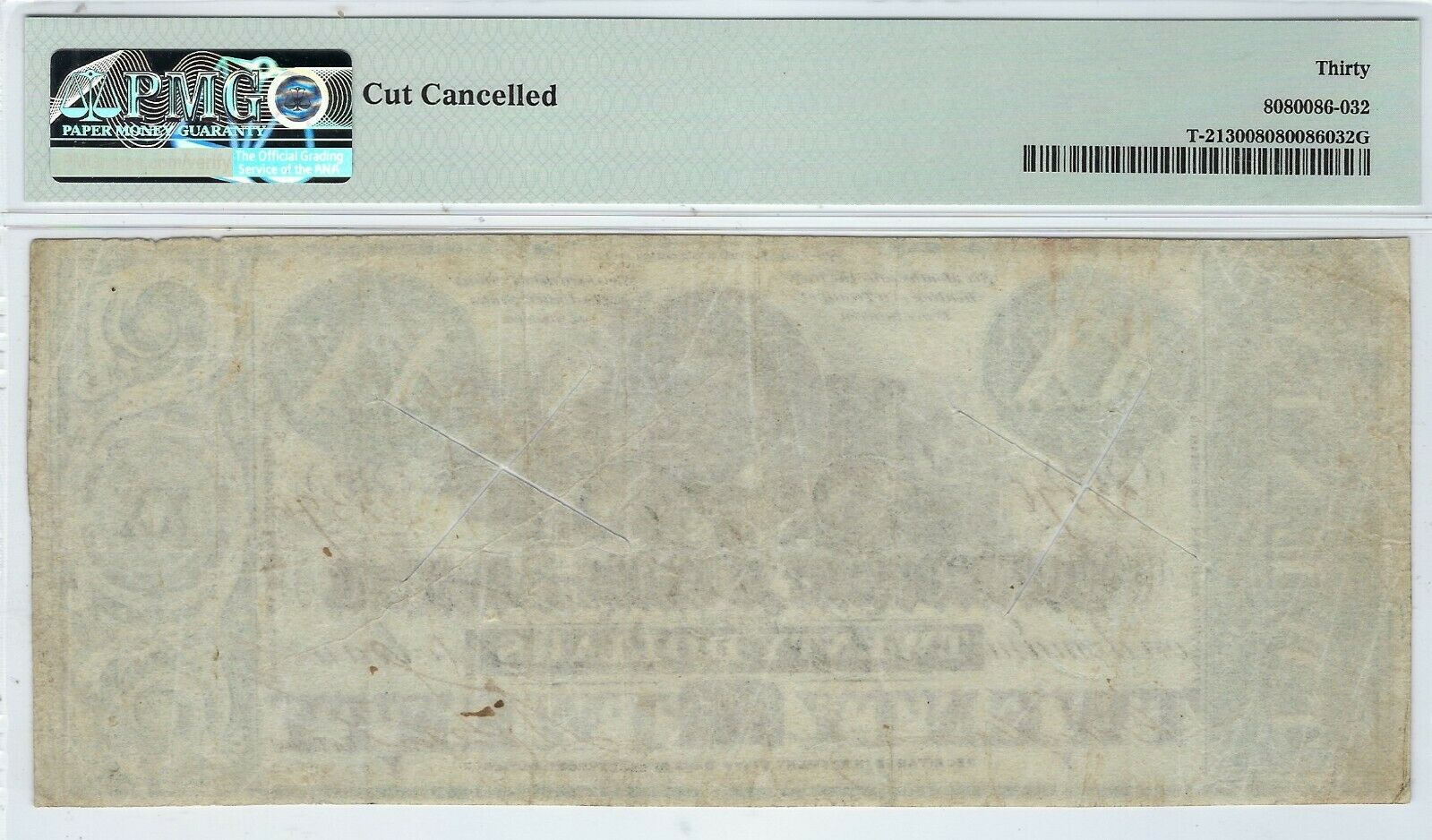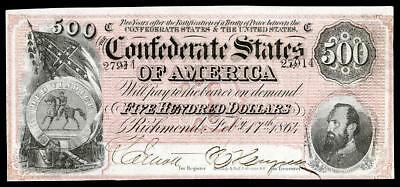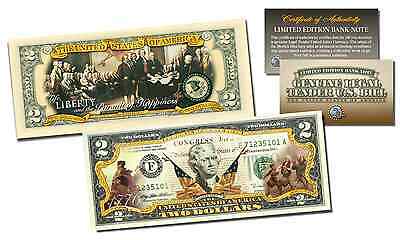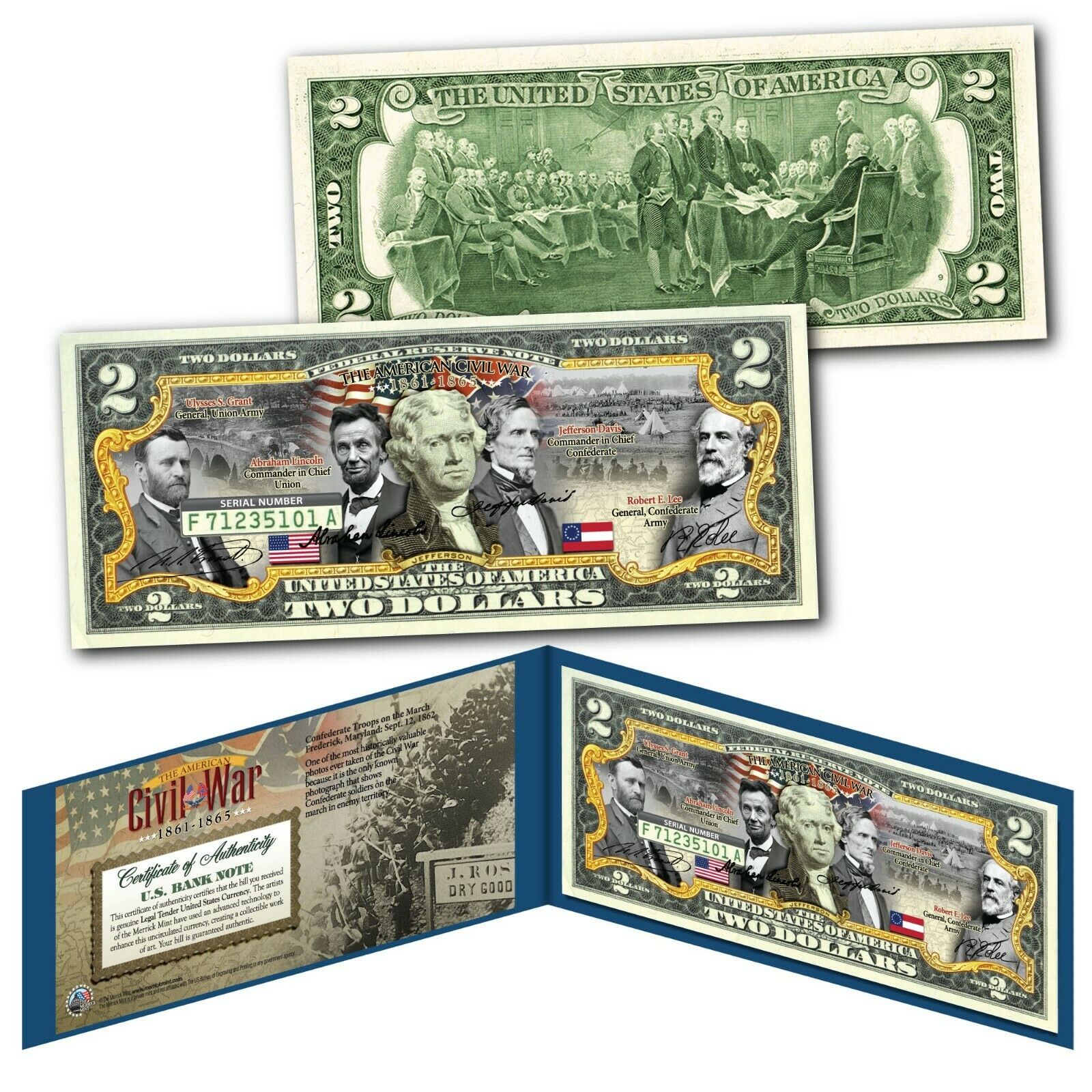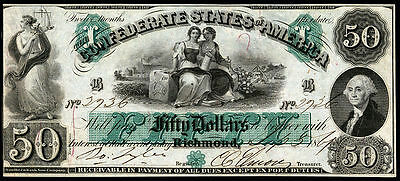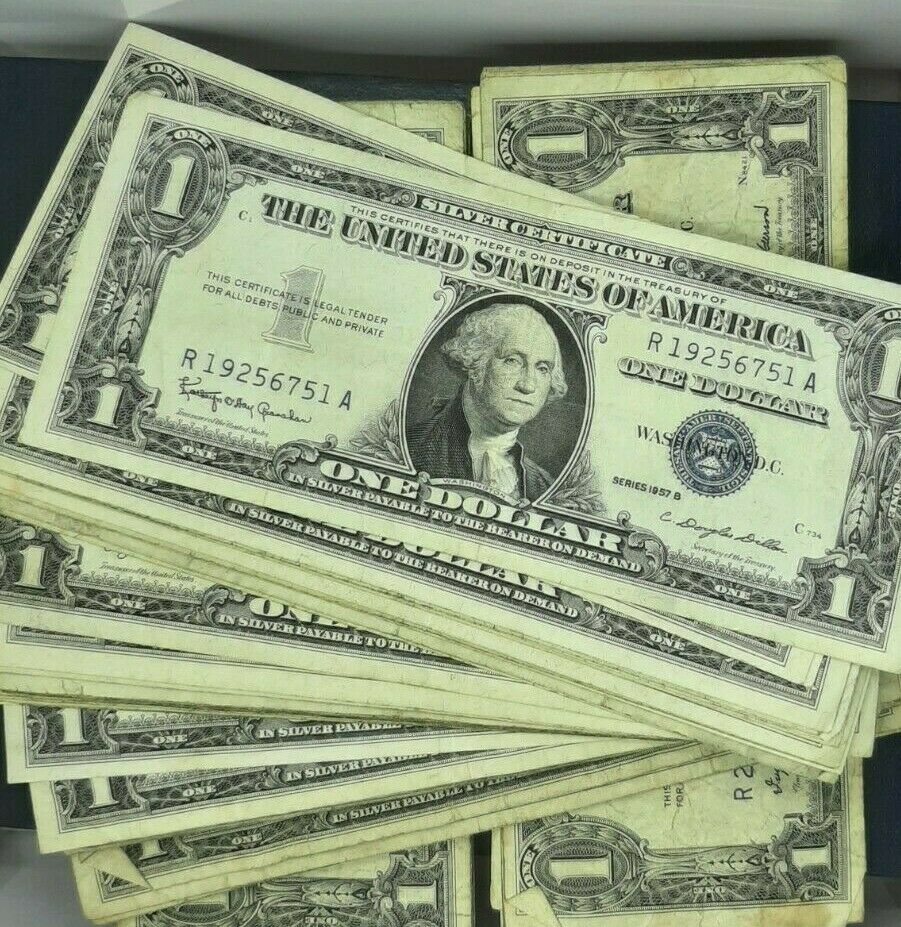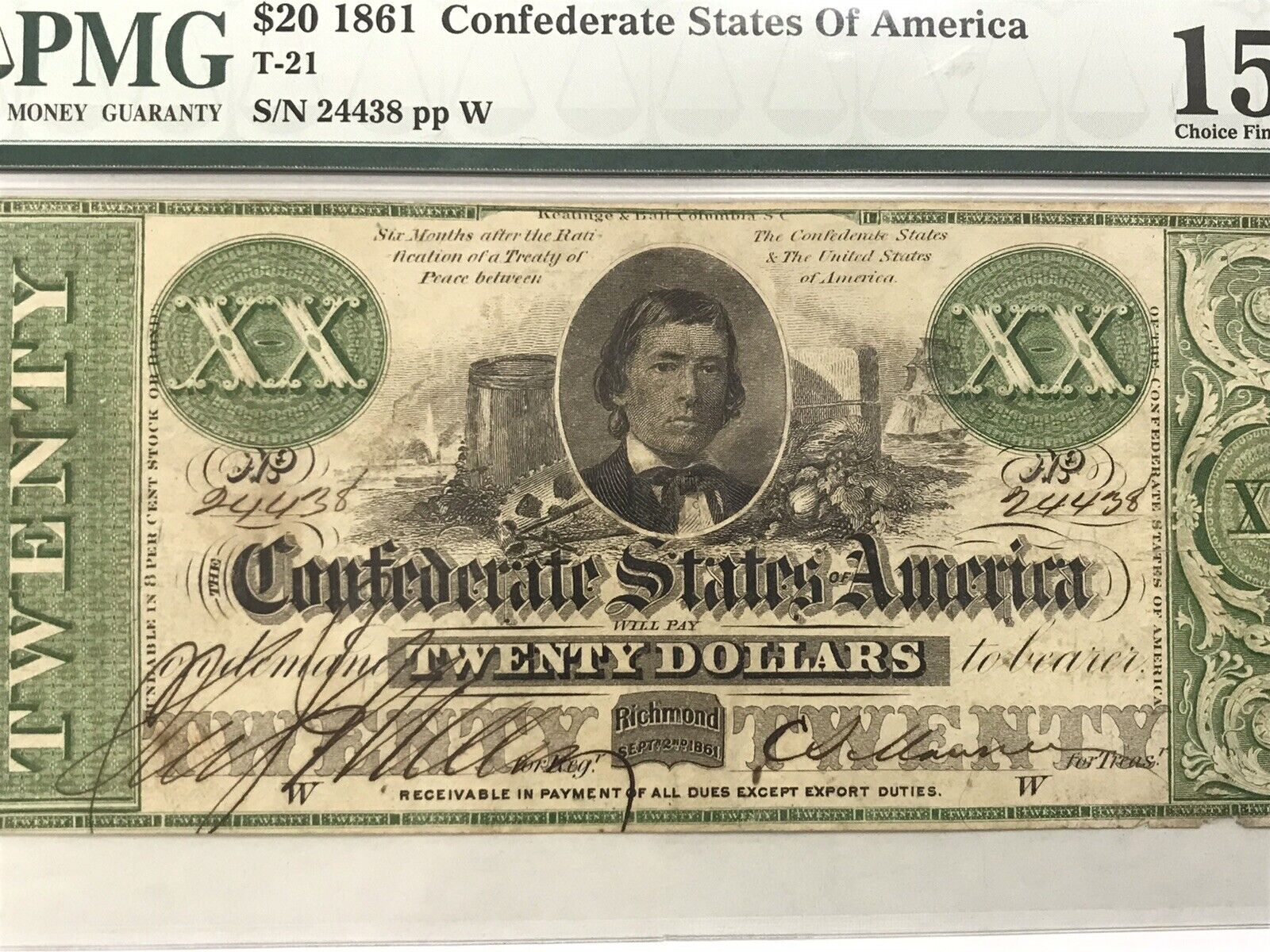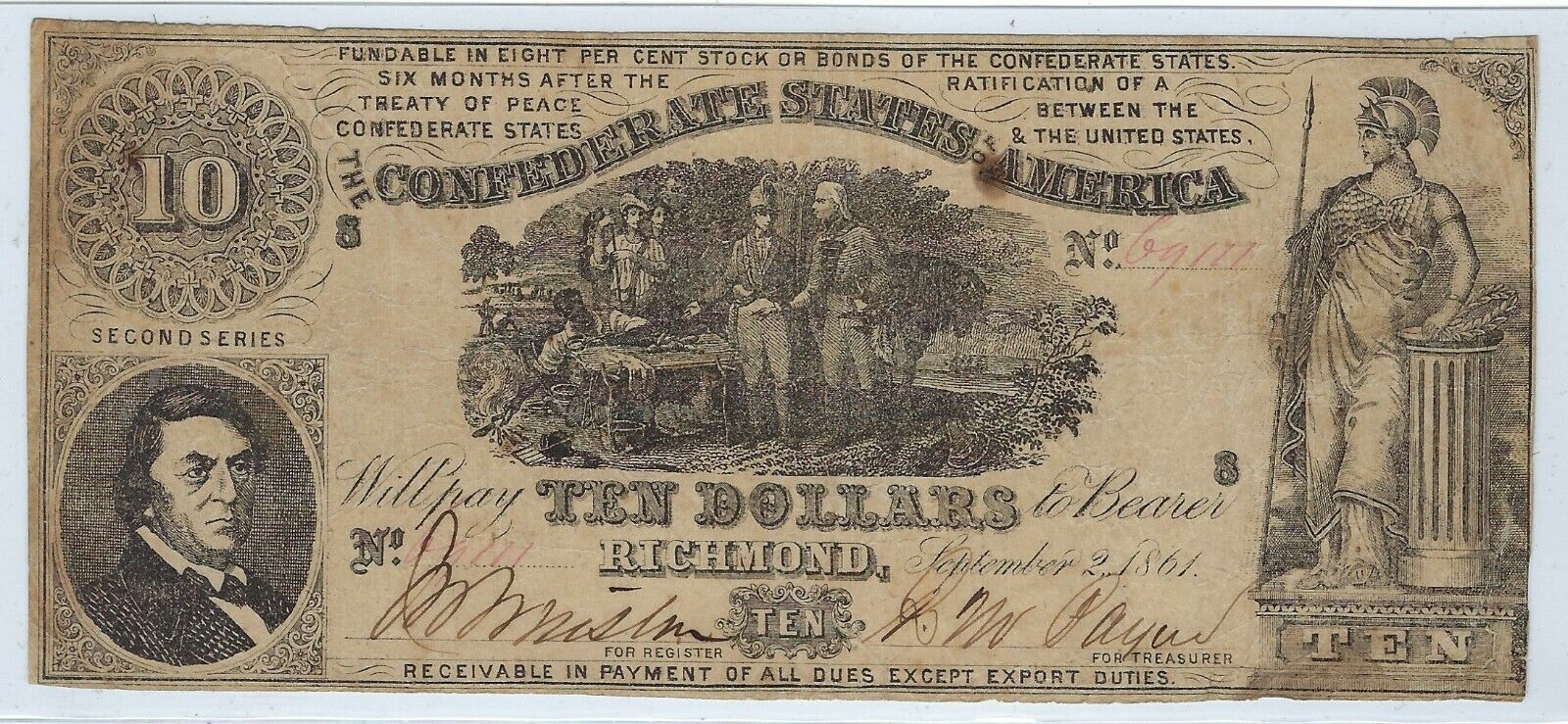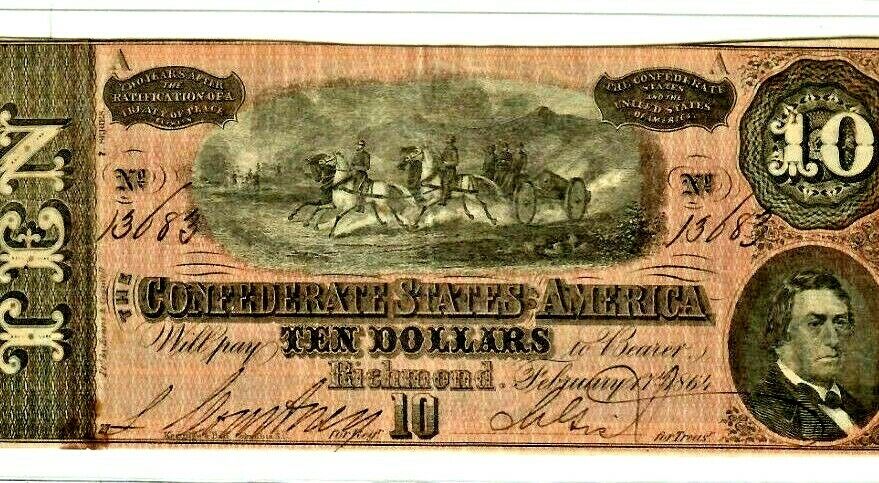-40%
T-21 PF-5 Confederate Paper Money 1861 - PMG Very Fine 30 - bright color!
$ 55.17
- Description
- Size Guide
Description
T-21 PF-5 .00 CSA Currency. Alexander Stephens, with barrel, cotton bales, etc. in the background. Issued from June 28, 1862 through November 15, 1862. Printed on paper watermarked CSA in script letters.
Serial number 32596. Plen Y.
Tougher variety!
PMG Very Fine 30!
Cut-canceled. Nice color and decent trim for the type.
Genuine.
This note is Keatinge & Ball’s high quality note, printed during 1862. The center features a portrait of Alexander H. Stephens, the Vice President of the Confederacy. Receivable in payment for all dues except export dues and fundable in Confederate States stock bearing 8% interest six months after the ratification of a treaty of peace between the Confederate States and the United States.
Both Keatinge & Ball, and Blanton Duncan, set up branch offices in Columbia, S.C. in the spring of 1862 as Union General McClellan approached Richmond. A great deal of the equipment needed to set these branches up was run through the blockade. Mr. Keatinge, himself, was personally involved in these affairs as he was a British subject and a former employee of the American Bank Note Company.
This type comes on high quality bank note paper, much of which is watermarked and imported. T-21 includes the rare “J Whatman” paper as well as the even rarer “NY” paper, secured no doubt, through Mr. Keatinge’s work and connections.
This type has a few varieties, mostly due to watermarks. As the engraving was high quality and the plate development and production processes better managed than most, there is not much variation amongst the plates used that is readily discernible. There are two shades of green overprint – yellow-green and darker green.
This type is elusive in Uncirculated, but it is available with some patience. True XFs and higher are tightly held, and not readily available at any given show, but they can be found with some patience as well. Choice notes are worth a significant premium as most of these have been trimmed into the margin.
A note about 3rd party grading. PCGS and PMG do a good job putting a floor on quality within a grade range and have become proficient in detecting repairs (though occasionally they miss something, or see something that is not there, as we all can).
Notes housed in Net or Apparent holders have a wide range of quality from very nice (in rare cases may be nearly choice) to dogs with major problems, so each needs to be evaluated on their own.
However, PMG and PCGS focus on technical grading due to circulation and damage and do not have a mechanism for evaluating condition or eye appeal - whether a note is average, better than average, choice or gem for the grade based on its color, trim and margins. The exception to this are slabbed notes of New or Uncirculated grades to some degree. This is important as Very Fine, Extremely Fine or AU notes can have a wide range of values depending on these factors not reflected in the slab grade. A fully framed Confederate or obsolete note is worth considerably to a lot more than one that is trimmed into the margin for the same grade. Likewise, color is important. These factors can affect the value of a note by 50%, 2-1 or even 3-1, e.g., an AU 58 (PPQ or not) T-20 1861 CSA note trimmed into the margin is worth between 0 and 0. The same grade, AU 58 (PPQ or not), with a full frame and good color/inking is worth something like 0 to 00 depending on eye appeal. I will continue to use the terms plus for above average, choice and gem to mean varying degrees of superiority of condition and eye appeal of a note within a grade as documented in my book which is based on what collectors seek out and pay premiums for.
In coins, we’ve seen the third party graders add things like full bell lines, full head, full bands which reflected the market. I’d expect either the grading services or another party to do the same for paper money. If you are just buying the number on the holder for the best price, you may well be buying low end notes for the grade!
Pierre Fricke. Immediate Past President of the Society of Paper Money Collectors; Professional Numismatists Guild (PNG); Professional Currency Dealers Association (PCDA); ANA, EAC, etc...
BuyVintageMoney.
Author of the standard guide book to Confederate money - Collecting Confederate Money Field Edition 2014.
Free shipping and insurance.
eBay has announced that it will start to collect sales tax on behalf of sellers for items shipped to customers in Alabama (Jul 1), Connecticut (Apr 1), Iowa (Feb 1), Minnesota (Jan 1), New Jersey (May 1), Oklahoma (Jul 1), Pennsylvania (Jul 1), and Washington (Jan 1). Additional states are being added like Idaho and more than 20 others. This is the new internet tax out of the US Supreme Court Wayfair decision. Buyers are responsible for paying this sales tax.
See eBay information for list of states eBay charges this tax payable by buyers to eBay as part of eBay invoices -- https://www.ebay.com/help/selling/fees-credits-invoices/taxes-import-charges?id=4121#section4
